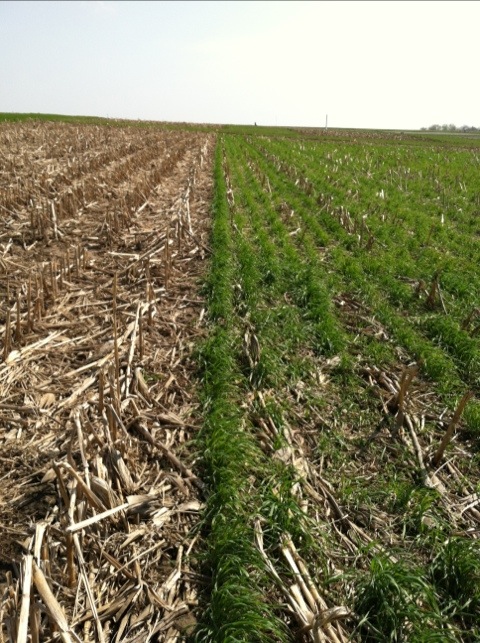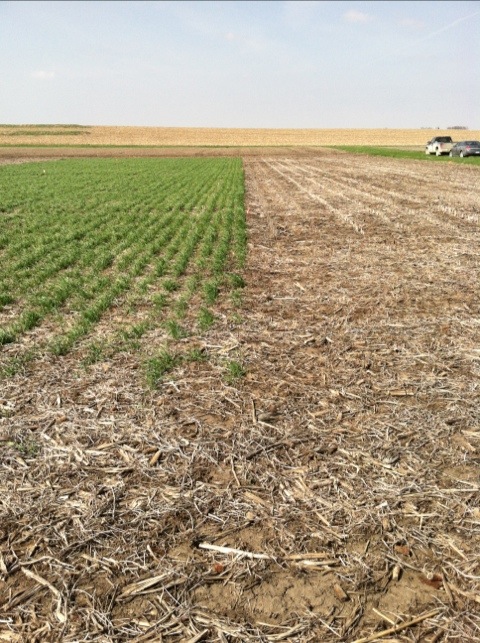I recently attended a field day based on Iowa State Research farms data on cover crops for Northeast Iowa. I am very interested in integrating cover crops into our row crop operation for many reasons, but the most important in my mind is that cover crops help make the soil healthier by increasing the organic matter. Conventional farming is slowly stripping away vital micronutrients, compacting the soils so it cannot breathe and disturbing the amount of organic matter that lay in the soil.
As one cover crop practicing farmer put it, “Cover crops are a no brainer. It is something that every responsible farmer should add to their management system as a task to do in the fall and spring”.
Cover crops are not a money maker, but they will help yields and the health of the soil in the long run. This fact does not usually sit well with most capitalist farmers, but if they want their land to produce for many generations to come, it is something that we all will need to do.
Organic farmers have to have cover crops. They don’t have the option of using herbicides, fungicides, pesticides, UAN, anhydrous ammonia, and other spray on or granular fertilizers. They require the naturally occurring necessities of worms, roots from the cover crops, manure, nutrients from the cover crops, a good 4-7 crop rotation, weeding, and the sun and the rain for a successful crop year.
In our area, small grains such as oats, cereal eye and wheat are good options. They are cold tolerant and are the easiest to fit in a corn/soybean rotation. In a soybean field in late August, oats or rye can be overseeded by aerial seeding or by a tractor and a broadcast spreader. Another option is to drill wheat or rye after the harvest of corn and soybeans.
The return on investment could be huge, but difficult to determine. Cover crops decrease erosion by 50%, increases the soil structure and organic matter, creates a slow release of Nitrogen over the years, and with these long-term improvements, can get a farmer its 300 bushel/ acre corn yield. Now that’s something a capitalist farmer will want to hear!

